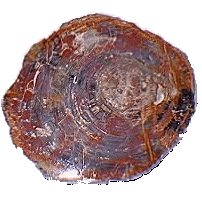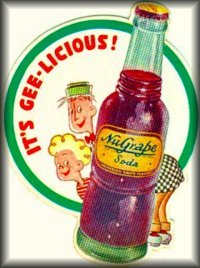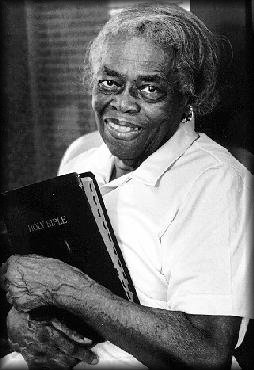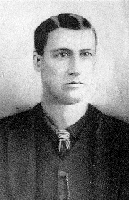I hope you enjoy the
following information, a large part of which I can take no credit for its
compilation. Much of the information contained in the following sections was provided
from the pamphlet/brochure Mississippi,
which is published by the office of Secretary of State, 401 Mississippi Street, P.O. Box 136 --
Jackson, Mississippi -- 39205. It is distributed by
Hon. Eric Clark, Secretary of the State of Mississippi, and it is his office to
which I owe recognition and gratitude.


While you're here, check out Mississippi's Newest Rising Country Star
-- BEVERLY ELLIS !!!

 MISSISSIPPI:
THE HOSPITALITY
STATE MISSISSIPPI:
THE HOSPITALITY
STATE 
POPULATION: The 1990 Census
showed the population of Mississippi
to be 2,575,478. At present, 47.1 percent of its people live in cities and towns, and 52.9 percent in rural
areas of the counties.
GEOGRAPHY: Mississippi covers 47,716 square miles.
The state is located in the center of America's Mid-South between 30
and 34 degrees north latitude and 88 and 91 degrees west longitude in the
northern hemisphere's temperate zone. It is bounded on the north by Tennessee, the east by Alabama,
the west by the Mississippi River and the south by the Gulf
of Mexico. Mississippi
measures 350 miles north-to-south and 180 miles east-to-west.
CLIMATE: For most of our year, the
climate is mild, becoming semi-tropical on the Gulf Coast.
The average temperature in January is 48 degrees. Summers are long, making it
possible to grow crops from March through October. The average temperature in
July is 81 degrees, but more common daytime temperatures range in the 90s.
The average rainfall is 52 inches, and fall is the driest season. The Jackson
National Weather Service
provides up-to-the-minute weather information for the State.
Mississippi is also known for having KUDZU. This vine-like
plant was planted in the 1920s -- 1940sby the Civil Conservation Corps (CCC)
to help prevent erosion of Mississippi's
hill areas. Formore on Kudzu CLICK HERE.

 TECHNOLOGICAL BREAKTHROUGHS TECHNOLOGICAL BREAKTHROUGHS 
Mississippi scientists,
physicians, researchers, engineers and entrepreneurs have recorded a number
of remarkable accomplishments and technical disciplines:
 In 1963, the University of Mississippi Medical Center
accomplished the world's first human lung transplant and, on January 23,
1964, Dr. James D. Hardy performed the world's first heart transplant
surgery. In 1963, the University of Mississippi Medical Center
accomplished the world's first human lung transplant and, on January 23,
1964, Dr. James D. Hardy performed the world's first heart transplant
surgery.
 Borden's Condensed Milk was first canned
in Liberty, Mississippi. Borden's Condensed Milk was first canned
in Liberty, Mississippi.
 It is reported that
when U.S. president
Theodore Roosevelt went on a business trip in Mississippi in 1902 to settle a dispute
concerning the Louisiana/Mississippi boundary. During this trip, he was
invited to join a bear hunt. The hunting proved unproductive and he was
unable to find a bear to kill. His supporters caught a bear cub and tied it
to a tree for the president to shoot, but he refused to do it. It is reported that
when U.S. president
Theodore Roosevelt went on a business trip in Mississippi in 1902 to settle a dispute
concerning the Louisiana/Mississippi boundary. During this trip, he was
invited to join a bear hunt. The hunting proved unproductive and he was
unable to find a bear to kill. His supporters caught a bear cub and tied it
to a tree for the president to shoot, but he refused to do it.
This event was documented in the Washington Post on November 16, 1902, illustrated with
the now-famous cartoon drawn by Clifford K. Berryman, entitled "Drawing the Line in
Mississippi". The
cartoon was an immediate success and provoked a huge public response. Morris
Michtom, a Russian emigré was inspired by the events to produce his own toy
bear to sell in his store in Brooklyn, New
York.
He called it
Teddy's Bear (Michtom allegedly wrote Roosevelt to ask if Roosevelt's
nickname ("Teddy") could be used for Michtom's line of
"Teddy's Bear"). Roosevelt granted permission use the name. The rest is
history.
Michtom's entire stock of bears was
purchased by U.S. wholesalers, Butler Brothers, who backed Michtom, enabling
him to set up what was allegedly the first teddy bear manufacturing company
in the United States -- the Ideal Novelty and Toy Co. By 1907 Ideal was
making bears on a large scale. CLICK HERE
to read about it.
 The world's largest shrimp is on display
at the Old Spanish
Fort Museum
in Pascagoula, Mississippi. The world's largest shrimp is on display
at the Old Spanish
Fort Museum
in Pascagoula, Mississippi.
 The world's largest headboard
manufacturing plant is the Masonite Company in Laurel, Mississippi. The world's largest headboard
manufacturing plant is the Masonite Company in Laurel, Mississippi.
 The world's largest manufacturer of
furniture wood products is in Eupora,
Mississippi. The world's largest manufacturer of
furniture wood products is in Eupora,
Mississippi.
 The first bottle of Dr. Tichener's
Antiseptic was produced in Liberty,
Mississippi. The first bottle of Dr. Tichener's
Antiseptic was produced in Liberty,
Mississippi.
 The world's largest cactus plantation is
in Edwards, Mississippi. The world's largest cactus plantation is
in Edwards, Mississippi.
 The world's first
round trip transoceanic flight was performed in1928 by H.T. Merrill, from
Iuka. The flight to England
was made in a plane loaded with ping pong balls. The world's first
round trip transoceanic flight was performed in1928 by H.T. Merrill, from
Iuka. The flight to England
was made in a plane loaded with ping pong balls.
 Shoes were first sold in boxes in pairs
(right foot and left foot) in Vicksburg,
at Phil Gilbert's Shoe Parlor on Washington
Street in 1884. Shoes were first sold in boxes in pairs
(right foot and left foot) in Vicksburg,
at Phil Gilbert's Shoe Parlor on Washington
Street in 1884.
 The first female rural
mail carrier in the U.S.
was Mrs. Mamie Thomas, who delivered mail by buggy in 1914 to the area
southeast of Vicksburg. The first female rural
mail carrier in the U.S.
was Mrs. Mamie Thomas, who delivered mail by buggy in 1914 to the area
southeast of Vicksburg.
 The Federal Building
in Jackson, is the first federal building in
the U.S.
to be named for a Black American. Dr. A.H. McCoy was a prominent dentist and
business leader. The Federal Building
in Jackson, is the first federal building in
the U.S.
to be named for a Black American. Dr. A.H. McCoy was a prominent dentist and
business leader.
 Historic
Jefferson College,
circa 1802, was the first preparatory school established in the Mississippi Territory. Located in Washington, MS,
it is also the site where tradition holds that Aaron Burr was arraigned for
treason in 1807, beneath what came to be known as the "Burr Oaks." Historic
Jefferson College,
circa 1802, was the first preparatory school established in the Mississippi Territory. Located in Washington, MS,
it is also the site where tradition holds that Aaron Burr was arraigned for
treason in 1807, beneath what came to be known as the "Burr Oaks."
 William Grant Still,
of Woodville, composed the Afro-American Symphony, which was the first
symphonic work by someone of his race to be performed in the U.S. William Grant Still,
of Woodville, composed the Afro-American Symphony, which was the first
symphonic work by someone of his race to be performed in the U.S.
 Burnita Shelton
Mathews, of Hazelhurst, was the first woman federal judge in the U.S., and
served in the District of Columbia, Washington. Burnita Shelton
Mathews, of Hazelhurst, was the first woman federal judge in the U.S., and
served in the District of Columbia, Washington.
 The first nuclear submarine built in the
South was produced in Mississippi. The first nuclear submarine built in the
South was produced in Mississippi.
 In 1871, Liberty,
MS, became the first town in the U.S. to erect
a Confederate monument. In 1871, Liberty,
MS, became the first town in the U.S. to erect
a Confederate monument.
 Mississippi
was the first state in the nation to have a planned system of junior
colleges. Mississippi
was the first state in the nation to have a planned system of junior
colleges.
 Leontyne Price, of
Laurel, was the first Black American to achieve international stardom in the
field of opera. Ms. Price was with the New
York Metropolitan Opera. Leontyne Price, of
Laurel, was the first Black American to achieve international stardom in the
field of opera. Ms. Price was with the New
York Metropolitan Opera.
 Mississippi
is the birthplace of the Order of the Eastern Star. Mississippi
is the birthplace of the Order of the Eastern Star.
 The rarest of North
American cranes lives in Mississippi in the
grassy savannas of Jackson
County. The Mississippi Sandhill
Crane stands about 44 inches tall and has an eight-foot wing span. The rarest of North
American cranes lives in Mississippi in the
grassy savannas of Jackson
County. The Mississippi Sandhill
Crane stands about 44 inches tall and has an eight-foot wing span.
 The world's oldest Holiday Inn is
located in Clarksdale. The world's oldest Holiday Inn is
located in Clarksdale.
 General Frank Gregory of Shelby, is one of the
principal developers of the helicopter. General Frank Gregory of Shelby, is one of the
principal developers of the helicopter.
 Guy Bush of Tupelo,
was one of the most valuable players with the Chicago Cubs. He was on the 1929 World
Series team and Babe Ruth hit his last home run off a ball pitched by Bush. Guy Bush of Tupelo,
was one of the most valuable players with the Chicago Cubs. He was on the 1929 World
Series team and Babe Ruth hit his last home run off a ball pitched by Bush.
 S.B. "Sam"
Vick of Oakland, played for the New York
Yankees and the Boston
Red Sox. He was the only man ever to
pinch hit for the baseball great Babe Ruth. S.B. "Sam"
Vick of Oakland, played for the New York
Yankees and the Boston
Red Sox. He was the only man ever to
pinch hit for the baseball great Babe Ruth.
 Blazon-Flexible Flyer,
Inc. in West Point, is proclaimed to make the very best snow sled in the
U.S., which became an American tradition. It is called, of course, "The
Flexible Flyer." Blazon-Flexible Flyer,
Inc. in West Point, is proclaimed to make the very best snow sled in the
U.S., which became an American tradition. It is called, of course, "The
Flexible Flyer."
 Friendship
Cemetery in Columbus, has been called "Where
Flowers Healed a Nation." It was April 25, 1866, and the Civil War had
been over for a year, when the ladies of Columbus decided to decorate both
Confederate and Union soldiers' graves with beautiful bouquets and garlands
of flowers. As a direct result of this kind gesture, Americans celebrate what
has come to be called MEMORIAL DAY each year, an annual observance of
recognition of our war dead. Friendship
Cemetery in Columbus, has been called "Where
Flowers Healed a Nation." It was April 25, 1866, and the Civil War had
been over for a year, when the ladies of Columbus decided to decorate both
Confederate and Union soldiers' graves with beautiful bouquets and garlands
of flowers. As a direct result of this kind gesture, Americans celebrate what
has come to be called MEMORIAL DAY each year, an annual observance of
recognition of our war dead.
 The largest Bible-binding plant in the
nation is the Norris Bookbinding Company in Greenwood. The largest Bible-binding plant in the
nation is the Norris Bookbinding Company in Greenwood.
 After the Civil War, famed hat maker
John B. Stetson learned and practiced his trade at Dunn's Falls near Meridian. After the Civil War, famed hat maker
John B. Stetson learned and practiced his trade at Dunn's Falls near Meridian.
 In 1834, Captain Isaac
Ross, whose plantation was in Lorman, freed his slaves and arranged for them
to be sent to Africa, where they founded the country of Liberia.
Recently, representatives of Liberia
visited Lorman and placed a stone at the Captain's grave site in honor of his
kindness. In 1834, Captain Isaac
Ross, whose plantation was in Lorman, freed his slaves and arranged for them
to be sent to Africa, where they founded the country of Liberia.
Recently, representatives of Liberia
visited Lorman and placed a stone at the Captain's grave site in honor of his
kindness.
 The world's largest cottonwood tree
plantation is in Issaquena County,
Mississippi. The world's largest cottonwood tree
plantation is in Issaquena County,
Mississippi.
 Mississippi
has more churches per capita than any other state. Mississippi
has more churches per capita than any other state.
 Mississippi
has more tree farms than any other state. Mississippi
has more tree farms than any other state.
 David Harrison of Columbus owns the patent on the "Soft
Toilet Seat." Over 1,000,000 are sold every year. David Harrison of Columbus owns the patent on the "Soft
Toilet Seat." Over 1,000,000 are sold every year.
 The first football player on a Wheaties
box was Walter Payton of Columbia. The first football player on a Wheaties
box was Walter Payton of Columbia.
 Greenwood is the home of "Cotton
Row," which is the second largest cotton exchange in the nation and is
on the National Register of Historic Places. Greenwood is the home of "Cotton
Row," which is the second largest cotton exchange in the nation and is
on the National Register of Historic Places.
 Emil and Kelly Mitchell,
the King and Queen of Gypsies, are buried in Rose
Hill Cemetery
in Meridian.
Since 1915, people from all over the worls have left gifts of fruit and juice
at their grave sites. Emil and Kelly Mitchell,
the King and Queen of Gypsies, are buried in Rose
Hill Cemetery
in Meridian.
Since 1915, people from all over the worls have left gifts of fruit and juice
at their grave sites.
 Inventor James D. Byrd of Clinton holds seven
patents and developed the plastic used as a heat shield by NASA. Inventor James D. Byrd of Clinton holds seven
patents and developed the plastic used as a heat shield by NASA.
 Every commercial airliner has at least
one hydraulic component manufactured by Vickers (now Eaton Corporation) in Jackson. Every commercial airliner has at least
one hydraulic component manufactured by Vickers (now Eaton Corporation) in Jackson.
 The oldest game in America is Stickball, played by the Choctaw
Indians of Mississippi.
Demonstrations can be seen every July at the Choctaw Indian Fair in Philadelphia, MS. The oldest game in America is Stickball, played by the Choctaw
Indians of Mississippi.
Demonstrations can be seen every July at the Choctaw Indian Fair in Philadelphia, MS.
 The International Checkers Hall of Fame
is in Petal. The International Checkers Hall of Fame
is in Petal.
 Natchez
was settled by the French in 1716 and is the oldest permanent settlement on
the Mississippi River. Natchez once had 500
millionaires, more than any other city, except New York City. Natchez now has more than 500 buildings that
are on the National Register of Historic Places. Natchez
was settled by the French in 1716 and is the oldest permanent settlement on
the Mississippi River. Natchez once had 500
millionaires, more than any other city, except New York City. Natchez now has more than 500 buildings that
are on the National Register of Historic Places.
 The Natchez Trace Parkway, named an "All American Road"
by the federal government, extends from Natchez
to just south of Nashville,
Tennessee. The Trace began as
an Indian trail more than 8,000 years ago. The Natchez Trace Parkway, named an "All American Road"
by the federal government, extends from Natchez
to just south of Nashville,
Tennessee. The Trace began as
an Indian trail more than 8,000 years ago.
 The Vicksburg National
Cemetery is the
second-largest national cemetery in the country. Arlington National
Cemetery is the
largest. The Vicksburg National
Cemetery is the
second-largest national cemetery in the country. Arlington National
Cemetery is the
largest.
 D'Lo was featured in Life
Magazine for sending proportionally more men to serve in World War II than
any other town of its size; 38 percent of the men who lived in D'Lo served.
D'Lo got its name (actually a nickname) from railroad workers because it was
too "Damned Low." D'Lo was featured in Life
Magazine for sending proportionally more men to serve in World War II than
any other town of its size; 38 percent of the men who lived in D'Lo served.
D'Lo got its name (actually a nickname) from railroad workers because it was
too "Damned Low."
 Mississippi
suffered the largest percentage dead of any Confederate State
in the Civil War. 78,000 Mississippians entered the Confederate military.By
the end of the war, 59,000 of this total were either dead or wounded. Mississippi
suffered the largest percentage dead of any Confederate State
in the Civil War. 78,000 Mississippians entered the Confederate military.By
the end of the war, 59,000 of this total were either dead or wounded.
 Pine Sol was invented in 1929 by
Jackson, Mississippi native Harry A. Cole, Sr. Pine Sol was invented in 1929 by
Jackson, Mississippi native Harry A. Cole, Sr.
 The world's largest pecan nursery is in Lumberton, Mississippi. The world's largest pecan nursery is in Lumberton, Mississippi.
 Greenwood, Mississippi, is called the
"Cotton Capital of the World." Greenwood, Mississippi, is called the
"Cotton Capital of the World."
 The first commercial
cotton picker in the world, made by International Harvester, was put into
operation in 1944, at the Hopson Plantation, near Clarksdale, MS. The first commercial
cotton picker in the world, made by International Harvester, was put into
operation in 1944, at the Hopson Plantation, near Clarksdale, MS.
 Belzoni, Mississippi, is called the
"Catfish Capital of the World." Belzoni, Mississippi, is called the
"Catfish Capital of the World."
 Vardaman, Mississippi, is called the
"Sweet Potato Capital of the World." Vardaman, Mississippi, is called the
"Sweet Potato Capital of the World."
 Greenville, Mississippi, is called the
"Towboat Capital of the World." Greenville, Mississippi, is called the
"Towboat Capital of the World."
 Root Beer was invented in Biloxi,
Mississippi, in 1898 by Edward Adolf Barq, Sr. Root Beer was invented in Biloxi,
Mississippi, in 1898 by Edward Adolf Barq, Sr.
 The oldest book in America, an ancient Biblical manuscript, is
located the University
of Mississippi. The oldest book in America, an ancient Biblical manuscript, is
located the University
of Mississippi.
 Mississippi is 32nd in size among the 50
states and 7thin size among the southern states. Of Mississippi's
82 counties, Yazoo County is thelargest and Alcorn County
is the smallest. Mississippi is 32nd in size among the 50
states and 7thin size among the southern states. Of Mississippi's
82 counties, Yazoo County is thelargest and Alcorn County
is the smallest.
 The largest cities in Mississippi
are Jackson, Biloxi, Meridian, Hattiesburg, Greenville, and Gulfport. The largest cities in Mississippi
are Jackson, Biloxi, Meridian, Hattiesburg, Greenville, and Gulfport.
 The Mississippi River is the largest in
the United States
and is the nation's chief waterway. It's nickname is "Old Man River." The Mississippi River is the largest in
the United States
and is the nation's chief waterway. It's nickname is "Old Man River."
 The Mississippi Methodist
Rehabilitation Center
in Jackson
houses a state-of-the-art surgical suite matched by only one other such
facility in the western hemisphere. The Mississippi Methodist
Rehabilitation Center
in Jackson
houses a state-of-the-art surgical suite matched by only one other such
facility in the western hemisphere.
 The Space Shuttle's main engines are
test-fired at the Stennis Space Center
in Hancock County. The Space Shuttle's main engines are
test-fired at the Stennis Space Center
in Hancock County.
 At Vicksburg,
the U.S.
Army Corps of Engineers Waterways Experiment Station is the world's largest
hydraulic research laboratory. At Vicksburg,
the U.S.
Army Corps of Engineers Waterways Experiment Station is the world's largest
hydraulic research laboratory.
 Jackson is headquarters for the former
Vickers Aerospace (now Eaton Industries), Marine Defense where components are
designed and manufactured for virtually every aircraft flown in theworld. Jackson is headquarters for the former
Vickers Aerospace (now Eaton Industries), Marine Defense where components are
designed and manufactured for virtually every aircraft flown in theworld.
 At Pascagoula,
the Ingalls Division of Litton Indistries uses leading-edge construction
techniques to build the U.S.
Navy's most sophisticated ships. At Pascagoula,
the Ingalls Division of Litton Indistries uses leading-edge construction
techniques to build the U.S.
Navy's most sophisticated ships.
 At the state's eight
research centers, programs are under wayin acoustics, polymer science,
electricity, microelectronics, hydrodynamics and oceanography. At the state's eight
research centers, programs are under wayin acoustics, polymer science,
electricity, microelectronics, hydrodynamics and oceanography.

 MISSISSIPPI
EMBLEMS & SYMBOLS MISSISSIPPI
EMBLEMS & SYMBOLS 
The Governor's
Mansion,
located on Capitol Street
in downtown Jackson,
was completed in 1842. Because of its historical significance and classical
architectural design, the building has been designated a National Historic
Landmark by the United States Department of the Interior. Restored in 1972,
every detail and furnishing authentically represents 19th century Greek
Revival architecture.


STATE COAT OF ARMS: Mississippi's Coat-of-Arms was adopted in
1894. Inscribed on the scroll is the state motto -- Virtue Et Armis --
"By Valor and Arms."


STATE NICKNAME: Actually, Mississippi
has two nicknames; "The Magnolia
State" and "The Hospitality State."

GEOGRAPHIC CENTER OF THE STATE: Leake, 9 miles
West/Northwest of Carthage

STATE FLAG: Designated by legislative
action on Feb. 7, 1894, the State Flag incorporates the national colors--
red, white, and blue -- and 13 five-pointed stars for the original states of
the Union. In 2000, the Mississippi
Supreme Court ruled that Mississippi
actually had NO official flag, since no law or resolution had ever been
"Officially" passed.


PLEDGE TO THE FLAG: "I salute the flag of Mississippi and the
sovereign state for which it stands with pride in her history and
achievements and with confidencein her future under the guidance of Almighty
God."

THE GREAT SEAL: The present state seal has been in
use since Mississippi
became a state in 1817.

Click HERE
for a Larger Image

STATE FLOWER AND TREE: In 1935, the Mississippi
Director of Forestry began a movement to select a state tree. The school
children of Mississippi
nominated four trees -- the magnolia, dogwood, pine, and oak. The Magnolia
received the largest number of votes and, on April 1, 1938, it was officially
designated by the Mississippi
Legislature as the State Tree. In November 1900, 23,278 school children of Mississippi had voted
to select a State Flower. The Magnoliar
ceived 12,745 votes. Among the remainder of the votes, the cotton
blossom received 4,171, and the cape jasmine received 2,484. It wasn't until
1952, though, that the Legislature officially designated the Magnolia as the
State Flower.


STATE BIRD: Found in all sections of Mississippi, the
cheerful Mockingbird was selected as the official state bird by the
Women's Federated Clubs and by the State Legislature in 1944.


STATE SONG: Go Mississippi.
Adopted as the Official
State Song of Mississippi in 1962
Words and Music by Houston Davis.
States may sing their songs of praise
With waving flags and "hip hoo rays,"
Let cymbals crash and let bells ring
'Cause here's one song I'm proud to sing.
Go, Mississippi, keep
rolling along,
Go, Mississippi, you cannot go wrong,
Go, Mississippi,
we're singing your song,
M-I-S-S-I-S-S-I-P-P-I
Go, Mississippi, you're
on the right track,
Go, Mississippi, and this is a fact,
Go, Mississippi,
you'll never look back,
M-I-S-S-I-S-S-I-P-P-I
Go, Mississippi,
straight down the line,
Go, Mississippi, everything's fine,
Go, Mississippi,
it's your state and mine,
M-I-S-S-I-S-S-I-P-P-I
Go, Mississippi,
continue to roll,
Go, Mississippi, the top is the goal,
Go, Mississippi,
you'll have and you'll hold,
M-I-S-S-I-S-S-I-P-P-I
Go, Mississippi, get up
and go,
Go, Mississippi, let the world know,
That our Mississippi
is leading the show,
M-I-S-S-I-S-S-I-P-P-I

STATE FISH: Largemouth or black bass.
 

STATE INSECT: Honeybee. (I'll bet you thought it was
the LAWYER.)


STATE WATER MAMMAL: Bottlenosed dolphin.


STATE FOSSIL: Prehistoric whale.


STATE LAND MAMMALS: Red fox and White-tailed deer.
 

STATE SHELL: Oyster.

STATE WATERFOWL: Wood Duck.


STATE BEVERAGE: Milk.

STATE STONE: Petrified Wood.


STATE BUTTERFLY: Spicebush Swallowtail.


STATE DANCE: Square-dancing.


Mississippi has 28 state parks, four national parks
and six national forests. For information about state parks, call
1-800-GO-PARKS.











 MISSISSIPPI
TRADITIONS MISSISSIPPI
TRADITIONS 
Mississippi's music and literary
traditions have gained the state worldwide fame. Contemporary music is rooted
in Mississippi.
The blues grew out of the Delta, and other genres of popular music have been
strongly influenced by Mississippians -- gospel, country, R&B, rock and
jazz.

Rural churches gave young artists like
Elvis Presley their first opportunities to sing or perform. Presley, born and
reared in Mississippi, is called by some the greatest single influence on
popular culture in the twentieth century. Others include: Leontyne Price,
James Earl Jones, Eric Roberts, Walter Payton, Gerald("Major Dad")
McRaney, Shelby Foote, Tom Lester ("Eb" on "Green
Acres"), Stella Stevens, Cynthia Geary, Ray ("My Favorite
Martian") Walston, Parker Posey, Brett Favre, Archie Manning, Oprah
Winfrey, Conway Twitty, Tammy Wynette, Faith Hill, LeAnn Rimes, Dorothy
Moore, B.B. King, Keith Thibodeaux ("Little Ricky on I Love Lucy),
Morgan Freeman, Donna Douglas ("Elly Mae Clampett" of the Beverly
Hillbillies),Charley Pride, Bo Diddley, John Lee Hooker, Robert Johnson,
Elmore James, Mississippi John Hurt, Howlin' Wolf, Jimmy Buffett, Theodore
Bilbo (Public Official), Red Barber, Netscape President Jim Barksdale, Jerry
Clower, Marty Stuart, Jimmie Rogers, Bobbi Gentry (Ode to Billie Jo),
Jeannie C. Riley (Harper Valley P.T.A.), Lance Alworth, Walter
Anderson, Glen Ballard, Haley Barbour, Jerry Rice, "Jumpin'" Gene
Simmons (Haunted House), Lehman Engel, Nathan Bedford Forrest, Mark
Gray, Dr. Arthur C. Guyton, Fred Haise, Lake Speed, John Stennis (41 years, 2
months in the U.S. Senate), Barrett Strong (Money), Jamie Whitten --
Congressman (longest service ever in the House of Representatives), Zig
Ziglar, "Fingers" Taylor, Rufus Thomas (Walkin' the Dog),Ike
Turner, Wesley Walls, Sela Ward, Jim Weatherly, Murray Kellum, Sonny Boy
Williamson II, Johnny Winter, Elizabeth Spencer, Dana Andrews, Moe Bandy,
Ralph Boston, Willie Brown, Charley Conerly, James Eastland (U.S. Senator),
Mayor Marion Barry, The Blackwood Brothers, Blind Melon, Delaney & Bonnie
Bramlett (Bonnie & Delaney),Ace Cannon, The Chambers Brothers, Sam Cooke,
Dizzy Dean, Willie Dixon, Tyrone Davis, Paul Davis, Mike Espy, Greg Harkins,
Spencer Haywood, Ken Kercheval, Frank "Bruiser" Kinard, L.Q.C.
Lamar, Stephen D. Lee, Trent Lott (U.S. Senate Majority Leader), Ethel Wright
Mohamed, Paul Overstreet, Marcus Dupree, Steve Forbert, Pete Fountain, Rowdy
Gaines, L.C. Greenwood, Ray Guy, Walker Percy, William Alexander Percy,
Thomas Hal Phillips, Bob Pittman (Founder of MTV), William Raspberry, Richard
Truly (Astronaut), Mickey Gilley, Fannie Lou Hamer, Guy Hovis, Jim Henson,
Thelma Houston, Beth Henley, Willie Mitchell, The Mississippi Mass Choir, Mac
McAnally, Thalia Mara, O.B. McClinton, Charlie McCoy, Steve ("Air")
McNair, James Meredith, Medgar Evers, Charles Evers, Diane Ladd, Denise Lasalle,
Jerry Lee Lewis, Fred Knoblock, Albert King, Belle Kearney, Deacon Jones,
Charlie Musselwhite, Willie Morris, Muddy Waters, Matt "Guitar"
Murphy, Paul Ott, Dunbar Rowland, Jim Buck Ross, Craig Claiborne (Columnist),
Barry Hannah (author), Felder Rushing, David Ruffin (of the Temptations),
Jimmy Ruffin (brother of David Ruffin), Otis Rush, Sid Salter, Johnny
Russell, Jimmy Reed, Mary Wilson (of the Supremes), Al Wilson, Joe Frank
Carollo (of Hamilton, Joe Frank & Reynolds), Fred Montalvo (owner
of ICEE, the world's largest frozen beverage company), Oliver Pollock
(inventor of the $ sign),and Resin Bowie (buried in Port Gibson, inventor of
the Bowie Knife, and brother to Jim Bowie), to name a few. For another great
site, check out Chip's Celebrity Page of Famous
Mississippians

A remarkable number of writers have emerged
from Mississippi -- William Faulkner, Eudora Welty, Tennessee
Williams, Margaret Walker Alexander, Richard Wright -- and the list is ever
growing. Richard Ford is the state's most recent Pulitzer Prize winner, and
John Grisham is the state's best-selling author of our time.

Over the past twenty years, Mississippi has also
become a hotbed of activity for its newest art form: movie-making. Among the
list are "Ode to Billy Joe," "MississippiBurning," "Mississippi Masala," "Biloxi
Blues," "A Time To Kill," "The Firm," "The
Client," "The Chamber," "Murder in Mississippi," "Ghosts of
Mississippi," "The Beast Within," "Intruder in the
Dust," "Baby Doll," "Raintree County," "The
Horse Soldiers,""Home from the Hill," "This Property is
Condemned," "The Reivers," "Tomorrow," "Thieves
Like Us," "The Premonition," "Huckleberry Finn,"
"Pretty Baby," "This is Elvis,"
"Crossroads,""River Pirates," "Heart of Dixie,"
"Miss Firecracker," "Wild at Heart," "The Gun in
Betty Lou's Handbag," and others.

A frontier past, a strong farming
tradition and a diverse ethnic mix form a complex pattern of influences in Mississippi. The
breadth and richness of these cultural influences are reflected in our music,
literature, art, and food. It has been said that Mississippi sings like no other place on
earth. Music that emerged from Mississippi
has influenced the culture of both the country and the world. Most agree that
Mississippi's
musical tradition is the result of our rich cultural mix. Some say the
climate is a catalyst for the
imagination and passion of the state's large number of writers.

Roots of Mississippi
traditions can be traced through annual events that celebrate various
influences on our culture -- events such as the Choctaw Indian Festival, the
Blessing of the Fleet, the Neshoba
County Fair and the
Delta Blues Festival. Later additions to these traditions include the Jubilee
Jam, Pepsi Pops, Farish Street
Festival, the Canton Flea Market, and the Mississippi State Fair. Recently, Jackson has hosted pre-season NFL games,
with more to come.

Pilgrimages to antebellum homes keep
history alive by helping to preserve old homes and promote historic
preservation. Museums also put our history on display. Exhibits at the State Historical Museum
(Old Capitol) show the progression of the state's history while specialized
museums are dedicated to Delta Blues, natural science, agriculture and
forestry, art, sports, railways and ethnic heritages.

Other places of interest include: the
Grand Village of the Natchez Indians; Gulf Island National Seashore;
Mississippi Petrified Forest; Elvis Presley's Birthplace; Russell C. Davis
Planetarium; Stennis Space Center and Technology Laboratory; Grand Gulf
Nuclear Station; Smith Robertson Museum and Cultural Center; Beauvoir, the
last home of Jefferson Davis; the Vicksburg National Military Battlefield
Park; the Mississippi Department of Archives and History; and Rowan Oak, the
home of William Faulkner.
Information about museums, places of
interest and events is available by calling the Mississippi Tourism Division at
1-800-WARMEST.

The Natchez Trace Parkway begins in Natchez, stretches diagonally across Mississippi
and winds to an end in Nashville,
Tennessee. More than 400 miles
long and 8,000 years old, the Trace is a route to hundreds of historic sites
including the 600 antebellum structures in Natchez,
Historic Jefferson
College, Emerald Mound, the Vicksburg National Military
Park, and the Alcorn
State University Historic District. A route of inestimable importance for
more than 400 years, the historic highway once linked an untamed wilderness
with civilization. Mount Locust Inn, built around 1780, is the only remaining
example of a frontier "stand" or inn on the Natchez Trace.

Love of family, church, good food, and
sports are Mississippi
traditions. Family reunions attract large family networks -- some numbering
in the hundreds, and the church is a primary social and cultural institution.
Hunting deer and fishing are favorite rural pastimes. Football, baseball and
basketball are played and cheered throughout the state. Every fourth year,
world-class ballet is the favorite competitive event when Jackson is host to the International Ballet
Competition. One person recently gave powerful embodiment to the Mississippi spirit -- Oseola McCarty did so with a gift
of$150,000 to the University
of Southern Mississippi.
Miss McCarty earned her living washing and ironing other people's clothes.
Generations unborn will reap the harvest of her love.


 MISSISSIPPI
ACCOMPLISHMENTS MISSISSIPPI
ACCOMPLISHMENTS 
 The world's largest collection of
original manuscripts and illustrations of children's literature is at the University of Southern Mississippi. The world's largest collection of
original manuscripts and illustrations of children's literature is at the University of Southern Mississippi.
 The 4-H Club, first known as the
"Corn Club," started in Holmes
County in 1907. The 4-H Club, first known as the
"Corn Club," started in Holmes
County in 1907.
 The Mississippi Gulf
Coast is the home of
the world's longest man-made beach -- 26miles long and approximately 200 feet
wide. The Mississippi Gulf
Coast is the home of
the world's longest man-made beach -- 26miles long and approximately 200 feet
wide.
 World-Famous Oreck Vacuum Cleaners are
made on the Mississippi
Gulf Coast. World-Famous Oreck Vacuum Cleaners are
made on the Mississippi
Gulf Coast.
 General Zachary Taylor
owned land at Rodney, Mississippi. It is reported that he was in
Rodney when he received news that he had been elected President of the United States. General Zachary Taylor
owned land at Rodney, Mississippi. It is reported that he was in
Rodney when he received news that he had been elected President of the United States.
 The first chapter of the PTA
was founded in Mississippi
in 1909. The first chapter of the PTA
was founded in Mississippi
in 1909.
 Coca-Cola was first put into bottles in Vicksburg in 1894. Coca-Cola was first put into bottles in Vicksburg in 1894.
 National Geographic Magazine is
printed at World Color, in Corinth,
Mississippi. National Geographic Magazine is
printed at World Color, in Corinth,
Mississippi.
 Mississippi has had four Miss Americas --
Mary Ann Mobley (1959), Lynda Lee Mead (1960),Cheryl Prewitt (1980), and
Susan Dian Akin (1985). Mississippi has had four Miss Americas --
Mary Ann Mobley (1959), Lynda Lee Mead (1960),Cheryl Prewitt (1980), and
Susan Dian Akin (1985).
 In 1882, the world's
first heavyweight championship fight took place at Mississippi City.
The term "knockout" was first used in this fight. John L. Sullivan
won the fight in eight rounds. In 1882, the world's
first heavyweight championship fight took place at Mississippi City.
The term "knockout" was first used in this fight. John L. Sullivan
won the fight in eight rounds.
 The first state funded
college for women in the nation was formed in Columbus,
MS, on March 12, 1884.It was established by
an act of the Mississippi Legislature and is
now known as Mississippi
University for Women. The first state funded
college for women in the nation was formed in Columbus,
MS, on March 12, 1884.It was established by
an act of the Mississippi Legislature and is
now known as Mississippi
University for Women.
 The world's largest collection of blues
music is at the University of Mississippi Blues Archives. The world's largest collection of blues
music is at the University of Mississippi Blues Archives.
 Alcorn State University is the nation's
oldest historically Black land-grant college. Alcorn State University is the nation's
oldest historically Black land-grant college.
 Mississippi's Petrified Forest near
Flora is the only such site in the eastern United States. Mississippi's Petrified Forest near
Flora is the only such site in the eastern United States.
 The official world's
record for keeping a plane aloft is held by Al and Fred Key of Meridian. They
refueled in the air and kept their plane aloft for 653 hours and 34minutes
(27 days, 5 hours, and 34 minutes) in 1935. The official world's
record for keeping a plane aloft is held by Al and Fred Key of Meridian. They
refueled in the air and kept their plane aloft for 653 hours and 34minutes
(27 days, 5 hours, and 34 minutes) in 1935.
 The nation's first levee system was
built along the Mississippi side of the Mississippi River in 1860 and
stretched for 300 miles. The nation's first levee system was
built along the Mississippi side of the Mississippi River in 1860 and
stretched for 300 miles.
 The nation's first Black newspaper The
Atlanta Daily World, was founded by Mississippian W.A. Scott. The nation's first Black newspaper The
Atlanta Daily World, was founded by Mississippian W.A. Scott.
 The Mississippi
Legislature, in 1839, passed one of the first laws in the English-speaking
world protecting the property rights of married women. Under the Married Women's
Property Act, women were allowed to retain the title to any property they
held before marriage. The Mississippi
Legislature, in 1839, passed one of the first laws in the English-speaking
world protecting the property rights of married women. Under the Married Women's
Property Act, women were allowed to retain the title to any property they
held before marriage.
 The City of Jackson/Davis Planetarium
was the first organization to make a commercial movie in space. The City of Jackson/Davis Planetarium
was the first organization to make a commercial movie in space.
 Mississippi College
was the first coeducational college in the nation to grant degrees to women.
Established in 1826, it is the oldest institution of higher learning in the
state. Mississippi College
was the first coeducational college in the nation to grant degrees to women.
Established in 1826, it is the oldest institution of higher learning in the
state.
 America's first artist-potter was George
Ohr (1857-1918) of Biloxi. America's first artist-potter was George
Ohr (1857-1918) of Biloxi.

 OTHER MISSISSIPPI FACTS OTHER MISSISSIPPI FACTS 
 Mississippi was the
first state to ratify the 18th Amendment to the United States Constitution,
issuing in the era of Prohibition in 1919-1920. It had also been the first
state to prohibit alcoholic beverages on a state level in 1908, and was the
last state to end statewide prohibition in 1966, thirty-three years after the
national prohibition had ended. Mississippi was the
first state to ratify the 18th Amendment to the United States Constitution,
issuing in the era of Prohibition in 1919-1920. It had also been the first
state to prohibit alcoholic beverages on a state level in 1908, and was the
last state to end statewide prohibition in 1966, thirty-three years after the
national prohibition had ended.
 Although Mississippi
sometimes has hot summers, Mississippi DOES NOT have the most HOT AIR in the
world. That can be found in the United States' Congress in Washington, D.C. Although Mississippi
sometimes has hot summers, Mississippi DOES NOT have the most HOT AIR in the
world. That can be found in the United States' Congress in Washington, D.C.
 When Aaron Burr fled
prosecution from the duel/murder of Alexander Hamilton, he landed at
Bruinsburg, Mississippi, on January 10, 1807, where he was promptly arrested
by Acting Governor Cowles Mead. Before a trial could be had at Washington,
Mississippi, Burr was declared by the grand jury to be guilty of no crime or
misdemeanor. Burr was subsequently arrested north of Mobile, Alabama, and was
eventually acquitted of treason. When Aaron Burr fled
prosecution from the duel/murder of Alexander Hamilton, he landed at
Bruinsburg, Mississippi, on January 10, 1807, where he was promptly arrested
by Acting Governor Cowles Mead. Before a trial could be had at Washington,
Mississippi, Burr was declared by the grand jury to be guilty of no crime or
misdemeanor. Burr was subsequently arrested north of Mobile, Alabama, and was
eventually acquitted of treason.
 Mobile (now in Alabama) was originally
part of Mississippi, as was most of the State of Alabama. Mobile (now in Alabama) was originally
part of Mississippi, as was most of the State of Alabama.
 Since becoming a state, Mississippi has
had four constitutions: 1817, 1832, 1869, and 1890. Since becoming a state, Mississippi has
had four constitutions: 1817, 1832, 1869, and 1890.
 The most decorated man from the
Korean/Vietnam War is Lawrence "Rabbit" Kennedy, from Amory, MS. The most decorated man from the
Korean/Vietnam War is Lawrence "Rabbit" Kennedy, from Amory, MS.
 Casey Jones, the
famous railroad engineer, met his demise at Vaughan, Mississippi, while
trying to make up for lost time. The Casey Jones
Museum is located in
Vaughan, in his honor. Casey Jones, the
famous railroad engineer, met his demise at Vaughan, Mississippi, while
trying to make up for lost time. The Casey Jones
Museum is located in
Vaughan, in his honor.
For more information on Casey Jones,
read The True Story of Casey Jones, and visit Casey Jones'
Story. Be sure to
read the Casey Jones
Accident Report.

Photos from the Casey Jones Museum -- Vaughan, Mississippi
Image 4
-- Image 5 -- Image 6

 NATURAL ABUNDANCE NATURAL ABUNDANCE 
Mississippi's first
inhabitants were a nameless people who fashioned earthern temples alongside
rivers. They were followed by three major Indian groups -- Choctaws,
Chickasaws and Natchez -- and many smaller tribes including the Biloxis,
Pascagoulas, Tunicas, and Yazoo. The state's recorded past dates to 1540 when
DeSoto marched through what is now Mississippi in search for gold. It was 141
years later when the next European, LaSalle, touched Mississippi soil. Since
then seven flags have flown over the state -- the flags of Spain, France,
England, the United States, the Confederate States, the Republic of West
Florida and the Mississippi state flag.

In 1699, d'Iberville, a Frenchman,
founded the first permanent settlement in the lower Mississippi valley at Old
Biloxi. In 1716 Bienville, his brother, established Natchez as an outpost of
the French coastal colony. Mississippi was ceded to the British by the Treaty
of Paris in 1763. The Spanish returned to Mississippi in 1781 and set up
their government at Natchez. Mississippi became a territory of the United
States in 1798 with Natchez as the capital. After the War of 1812,
Mississippi petitioned for statehood. On December 10, 1817, Mississippi
became the twentieth state admitted to the Union. Natchez again became the
capital, but in 1820 the government moved to Columbia and later to
Monticello. In 1821, the Legislature selected LeFleur's Bluff as the state
capital and changed its name to Jackson in honor of General Andrew Jackson,
who later became president. Unsubstantiated rumors circulated for years
claiming that Old Gerrington (Gerenton), a community 8 miles west of Vaiden, missed becoming the state
capitol by only one vote. No other town in the world bears the name Vaiden.

After a series of wars and treaties, the
Chickasaws, Natchez and smaller tribes scatteredor became extinct; several
thousand Choctaws remain near Philadelphia. Early governmentbuildings reflect
the hope and pride of citizens of the new state. The Old Capitol was completed in 1841 at a cost of $400,000. The Governor's
Mansion,completed in 1842,
is the second oldest continuously occupied state executive residence inthe
United States.

The steamboat revolutionized commerce on
the Mississippi River. River trade boomed in the 1820s. From 1830 to 1850
Mississippi grew into a wealthy cotton empire bringing newpeople and commerce
to the state. Enslaved Black Mississippians provided most of the labor for
the growth. By 1860, Mississippi produced almost one-fourth of the nation's
entire cotton crop.

On January 6, 1861, Mississippi became
the second state to secede from the Union as civil war loomed. In
disagreement with this decision, Jones County, Mississippi, attempted to
secede from Mississippi. On February 18, 1861, Jefferson Davis, a former U.S.
Senator from Warren County, was inaugurated President of the Confederate
States of America. Civil war battles were fought in almost every area of
Mississippi. The major struggle was the seige of Vicksburg -- the city's
strategic location on the Mississippi River made it the primary goal of
Federal campaigns in the state. Known as the "Gibraltar of the
Confederacy," Vicksburg fell on July 4, 1863, and the Confederacy's fate
was sealed. During a post-war period known as Reconstruction, Mississippi was
readmitted to the Union in 1870. That same year Hiram Revels, later president
of Alcorn State University, was elected by the Mississippi Legislature as the
first Black U.S. Senator.

From Reconstruction until the Great
Depression, Mississippi had an agricultural economy and segregated society.
Although railroads and better roads developed the timber industry, After
World War II Mississippi moved toward an industrial economy; economic
opportunity was accompanied by demands for civil rights and an integrated
society. Today Mississippi participates in the global economy and works for
the economic advancement of all its people. Our diverse economy is based on
manufacturing, the service sector and agriculture. The State operates eight
public universities and a system of 15 community colleges to ensure that all
Mississippians have access to the advantages of a college-level education. A
town of 8,000 when construction began on the New Capitol (pictured below) in 1901, Jackson's metropolitan
population is now 395,000.


Mississippi is home to 80
telecommunications companies including Skytel, the first company to offer two-way wireless
messaging; WorldCom, the nation's fourth-largest long distance common
carrier; Natcom, the largest pager refurbisher in the United States; and
Trilogy Communications, a worldwide manufacturer of coaxial cable. Home-grown
industries thrive throughout the state and are a tribute to the people who
built them. Peavey Electronics is one such
company. Started in 1965 in Hartley Peavey's garage, the company now exports musical
instruments, amplifiers, and equipment to more than 100 countries and is the
largest manufacturer of such equipment in the world.

Education is an important issue to
Mississippians. From kindergarten to elementary, high school and higher
public education, the emphasis is on preparing young Mississippians to go out
into the world and succeed. Meeting the educational needs of all Mississippi
children is a basic goal of the state.

The landscape plays a central role in
our history, shaping our daily existence and our communities. Terrain ranges from
alluvial flood plain to undulating prairie to steep, eroded hills, and each
region has its recognizable characteristics. Twelve different soil areas are
dominant in Mississippi: Northeastern Hills; Pontotoc Ridge; Tombigbee
Prairie; Yazoo-Mississippi Delta (If you wonder if the Mississippi Delta is
really FLAT, CLICK HERE to
see for yourself); Loess Bluffs; Flatwoods; Red Clay Hills; Brown-Loam Area;
Jackson Prairie; River Lowlands; Piney Woods; and the Gulf Coastal Terrace.

Water: The Mississippi River borders the
state on the west with a daily flow of 300 - 500 billion gallons. There are
eight other major rivers in the state plus hundreds of lakes and six large
reservoirs. The entire southern section of the state borders on the Gulf of
Mexico.
Minerals: Mineral deposits include a
wealth of clays, marl, cement rock, sandstone, bentonite, limestone, and
fuller's earth. Mississippi ranks 12th nationally in the production of oil
and ranks 13th in the production of natural gas. There are more than 550 oil
and gas fields with more than 2,050 producing wells.
Forests: Approximately 18,600,000 acres
of Mississippi's 47,716 square miles of area are covered with forests -- one
of the state's most important sources of income. Pines, oaks and gums
predominate. Mississippi is the nation's number one tree-farming state.
Native resources of each region provide
a stable base for the state's growing economy, fueling tradition and new
operations: agriculture and food processing catfish farming poultry and egg
production and processing cattle and hog farming timber production paper
milling furniture manufacturing textile production commercial fishing seafood
processing oil and natural gas production coal and lignite mining.

Combining its natural and human
resources with economic incentives, Mississippi attracts a broad spectrum of
business, industrial and technical operations. Today, a large, growing
service sector and gaming add strength and diversity to an economy
traditionally supported by agriculture and manufacturing.

Mississippi's largest single
manufacturing sector is forest products and furniture, encompassing
everything from sawmills to multi-purpose paper mills to six of the nation's
top ten furniture manufacturers. Timber ranks second only to poultry among
the state's agricultural commodies. The values of the state's timber harvest
exceeds $1 billion, and the state ranks second nationally in the number of
acres deforested each year.
Soybeans now lead cotton in acres, but
cotton is still king of crops in terms of dollars, ranking Mississippi fourth
after Texas, California, and Georgia in production. Other important farm
products are livestock, corn, sorghum grain, wheat, rice, peanuts, hay,
fruits and vegetables.

Mississippi is the world's leading
producer of POND-RAISED
CATFISH and
ranks among the top 10 states nationally in production of poultry, rice,
pecans, sweet potatoes("sweet taters"), muscadine grapes
(scuppernongs) and greenhouse tomatoes.


Located between Atlanta and Dallas to
the east and west and Memphis and New Orleans to the north and south,
Mississippi is within a day's drive of 12 major American markets. Ports along
the Mississippi River and Tennessee-Tombigbee Waterway and deep water ports
on the Gulf of Mexico connect the state to markets around the world. The name
"Mississippi," comes from the American Indian word "Messippi,"
meaning "Father of Waters."

Interstates 55 and 20 intersect at the
heart of the state. Passenger and freight trains crisscross the state, while
commercial, passenger and cargo flights arrive and depart daily from airports
large and small.
Because of market accessibility,
Mississippi is base for companies working in a variety of fields: automobile
parts, aircraft components, marine equipment, musical instruments and amplifiers,
transportation and distribution, shipbuilding, chemicals, fertilizers,
printing, clothing and heavy machinery.


I hope you have enjoyed
this information, a large part of which I can take no credit for its compilation.
Much of the information contained in the preceding sections was provided from
the pamphlet/brochure Mississippi, which is published by the office of
Secretary of State -- 401 Mississippi Street -- P.O. Box 136 -- Jackson,
Mississippi. It is distributed by Hon. Eric Clark, Secretary of the State of
Mississippi, and it is his office to which I owe recognition for the
compilation of this material. So come visit, and as the Beverly
Hillbillies would say, "sit a spell, take your shoes off, y'all come
back now, 'ya hear?"






Web Page Design and Compliation Copyright © by Ron Collins. 2007.
|

